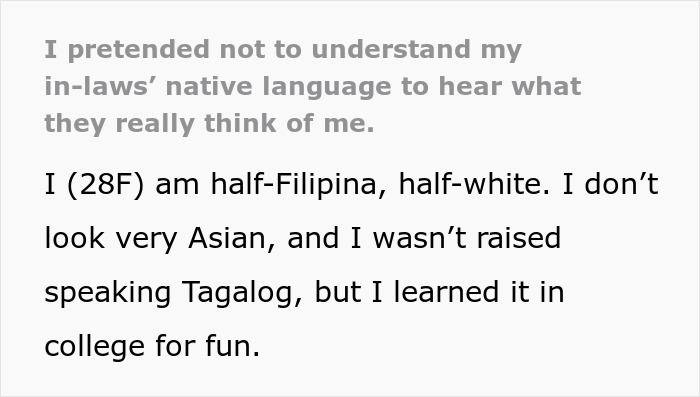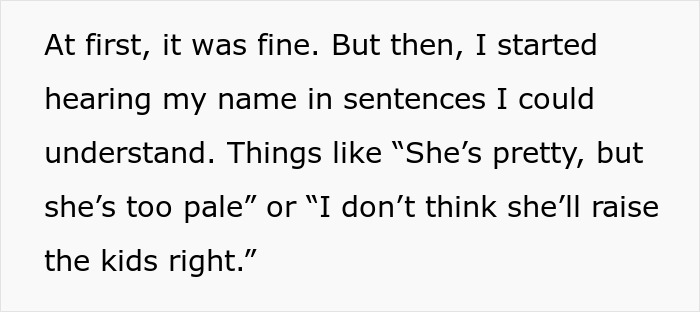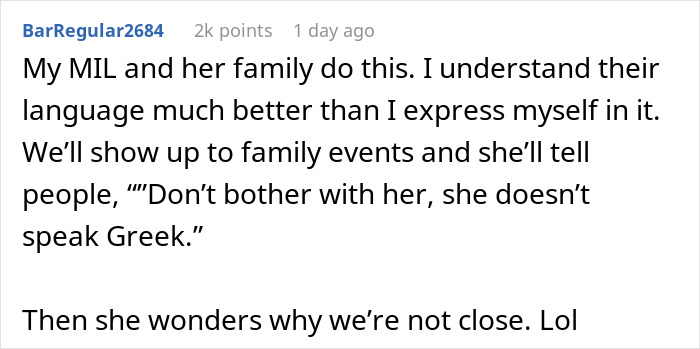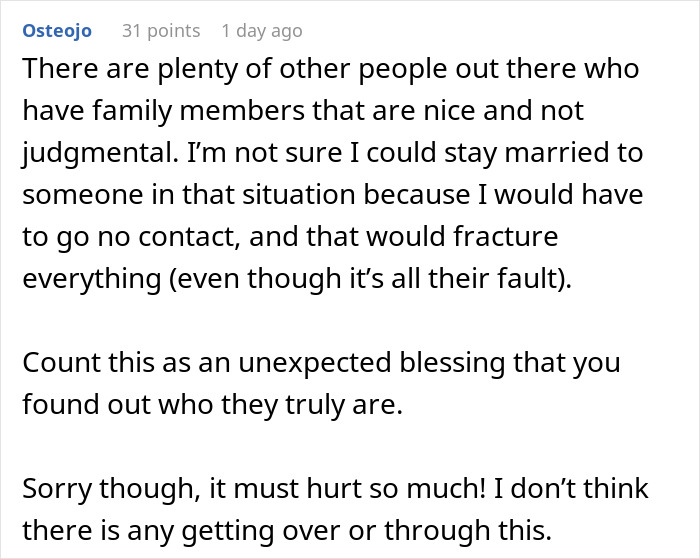Sometimes, we stay silent not because we don’t understand, but because we want to give people the benefit of the doubt. We assume good intentions, overlook the uncomfortable moments, and hope that respect doesn’t have to be earned through confrontation. But what happens when that silence is mistaken for ignorance and that ignorance invites cruelty?
That’s exactly what happened to today’s Original Poster (OP) who, despite being half-Filipina, didn’t exactly scream “Asian” to her fiancé’s tight-knit Filipino family. Unbeknownst to them, she had secretly learned Tagalog in college, and kept that knowledge under wraps during every family visit.
More info: Reddit
There’s a strange kind of power in being underestimated, especially when people think they’re talking behind your back, but you catch every word

Image credits: EyeEm / Freepik (not the actual photo)
The author who is half-Filipina but doesn’t appear Asian, visited her Filipino fiancé’s family, who often speak Tagalog around her, assuming she didn’t understand




Image credits: freepik / Freepik (not the actual photo)
Over time, she began to catch hurtful comments made about her in Tagalog, including criticisms about her appearance and doubts about her as a future mother




Image credits: freepik / Freepik (not the actual photo)
Things escalated when an aunt said she’d take her fiancé away from the family, prompting her to finally reveal that she understood everything


Image credits: Smooth_Vacation8674
After confronting them in fluent Tagalog, the family was shocked and apologetic, but she questioned whether she could be a part of the family
The OP is half-Filipina but didn’t speak Tagalog at home, though she took it up in college out of curiosity. Her fiancé is fully Filipino and very close to his extended family. Every time they visited, the family would chat away in Tagalog, assuming she couldn’t understand a word.
At first, she brushed off their conversations as harmless. However, things took a turn when she started catching bits and pieces, especially when her name kept popping up in sentences that clearly weren’t compliments. Remarks about her skin, her culture, and even her future parenting started rolling in.
One day, an aunt went too far. She suggested that the OP would tear her fiancé away from his family and “poison his heart” against them. That was the final straw. That night, the OP confronted her fiancé and told him everything, including the full quote. He confronted his mom who immediately denied it until the OP repeated the exact words in perfect Tagalog.
Since the confrontation, the entire family has been apologizing. But for the OP, the damage had already been done because it wasn’t just the words that hurt, rather it was the fact that respect only came after they found out she could understand.
To understand why in-laws sometimes develop negative assumptions based on cultural background or appearance, Bored Panda spoke with family therapist Steph Anya, who shed light on this surprisingly common dynamic.
“It’s often not about malice but a lack of exposure and empathy,” Anya explained. “Our brains are wired to make snap judgments, and when those judgments are influenced by stereotypes or unfamiliar traditions, misunderstandings can come up.” She also emphasized that families tend to cling to what’s familiar, and anything different can feel threatening.

Image credits: Timur Weber / Pexels (not the actual photo)
But she also offered hope, adding, “These uncomfortable moments are opportunities for growth. Families that lean into curiosity instead of criticism often discover that what first felt foreign becomes something they genuinely treasure.”
When asked about the role language plays in such family tensions, Anya pointed out that switching to another language around someone “reveals complex dynamics, sometimes closeness, other times a subtle barrier.”
She noted that “using a language others don’t understand can create a private space, but it can also unintentionally, or very deliberately exclude people. It sends a message that sounds like ‘you’re not fully part of this group.'”
Addressing how someone might handle overhearing hurtful comments, Anya advised setting calm, firm boundaries. “It’s important to pause and remember that these words often come from fears or biases, not your value,” she said. “Having a thoughtful conversation with your partner later helps you both protect your relationship and present a united front.”
In sum, Anya encouraged families to choose openness and connection over exclusion, stressing that “language and cultural differences don’t have to divide; they can enrich and deepen family bonds when met with empathy and respect.”
Netizens resonated deeply with the story, sharing their own experiences of being excluded by in-laws who assumed they didn’t understand the language. They expressed how hurtful and alienating that behavior can be, and emphasized that a partner’s family can be a legitimate dealbreaker.
What would you do if you were in the OP’s shoes? Would you forgive the family or walk away? We would love to know your thoughts!
Netizens said the situation was a red flag and urged her to hold off on their wedding for a bit















